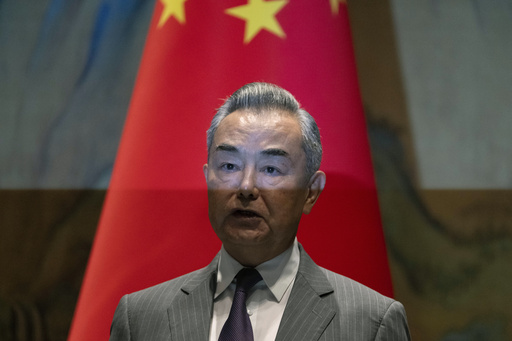China’s Foreign Minister, Wang Yi, delivered a speech three days before China’s communist government celebrates its 75th anniversary. During his address, Wang Yi emphasized the importance of preventing an expansion of the battlefield in Russia’s conflict with Ukraine. He also urged against other nations exacerbating the situation for their own benefit, with a veiled reference to the United States.
Wang Yi’s remarks at the U.N. General Assembly’s annual meeting follow China’s commitment to shuttle diplomacy and resolving conflicts peacefully. While his speech did not introduce new initiatives, it underscored China’s consistent stance on international affairs. Chinese President Xi Jinping, known for his absence at such gatherings, has not participated in person for several years.
On the sidelines of the assembly, China and Brazil presented a peace plan for Ukraine, which garnered support from around a dozen countries. Despite Ukrainian officials showing little enthusiasm for the proposal, a group of “friends for peace” has formed to continue discussions. This group, comprising mainly African and Latin American nations, aims to facilitate dialogue between ambassadors.
China’s unwavering emphasis on respecting sovereignty echoes its foreign policy principles. The nation’s historical struggles to maintain control over regions such as Xinjiang, Tibet, Hong Kong, and Taiwan shape its diplomatic stance. Wang Yi reiterated China’s stance on Taiwan, rejecting the notion of “two Chinas” or “one China-one Taiwan,” emphasizing the island’s eventual reunification with the mainland.
Looking beyond the Ukraine crisis, Wang Yi addressed escalating tensions in the Middle East and the Korean Peninsula. He voiced China’s support for Palestinian statehood and a two-state solution while advocating for peace on the Korean Peninsula. Wang Yi cautioned against external interference in East Asia, emphasizing regional autonomy in resolving conflicts.
Regarding human rights, Wang Yi defended China’s approach, stating that every country should choose a path suited to its national conditions. However, international critics have raised concerns about China’s treatment of Tibetans, Uyghurs in Xinjiang, and activists in Hong Kong.
In conclusion, China’s foreign policy priorities, as outlined by Wang Yi, reflect the nation’s strategic engagements on the global stage. With a focus on diplomacy, sovereignty, and regional stability, China continues to navigate complex international dynamics while advocating for peaceful resolutions to conflicts.


